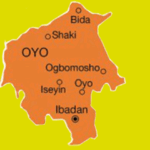Alternative Dispute Resolution (ADR) has been lauded for its effectiveness in seamless dispensation of justice, especially in issues of contractual breach. ADEOLA OJO in this piece looks at the effectiveness of arbitration in the sports industry and whether ADR is a feasible solution.
In sports, especially in the build-up to a new season in the Premier League, it is common to hear of issues of players having problems with the release clause in their contract, leading to drawn-out disputes between them, their agents, their club, and any club interested in buying them. And while there are rules guiding the process, which already borders on principles of arbitration, people have asked if by provisions of law, ADR can be used to resolve such crises.
Like every other industry, the sports industry is a big one and consequently, it has its share of conflicts. This is why there are established laws to handle issues through arbitration — that is, resolution of conflict without going to court, in an alternative dispute resolution method (ADR).
In sports, arbitration is the legal process used to resolve disputes between athletes, teams, or sports organizations without going to court, and it involves parties entering into an agreement to have their issue heard by an independent arbitrator or panel, whose decision is final and binding.
One of such panels is the Court of Arbitration for Sport (CAS), which handles cases like doping allegations, contract disputes between players and clubs, or disagreements over player transfers. Athletes often prefer arbitration because it’s faster and less public than traditional court proceedings, allowing them to get back to competing as quickly as possible.
One of such disputes is the controversy that erupted between Nigeria and Libya during the AFCON qualifier in 2024. Nigeria’s national football team flew to Libya for a crucial Africa Cup of Nations (AFCON) qualifying match but ended up in a hostage situation characterised by diplomatic and logistical nightmare. The Nigerian players were allegedly denied access to food, water and communication, with their plane diverted to a different airport in a move described as intentional by the Libyan authorities to unsettle them ahead of the game.
Consequently, Nigeria refused to play the match and the Confederation Africaine de Football (CAF), the governing body for football in Africa, launched an investigation into the incident. In its ruling, it awarded Nigeria a win with 3-0 and slapped a fine of $50,000 on Libya.
ALSO READ: Dangote, NUPENG reach agreement, suspend strike
This decision was based on application of arbitration rules and regulations. CAF made the decision to award victory to Nigeria after finding Libya guilty of violation of several key regulations. The regulations include:
• Article 31 of the AFCON Regulations which mandates that a host country must have a committee in place to meet visiting teams at the airport, facilitate their entry into the country, provide transportation and assign a liaison officer to assist with logistics. A condition Libya failed to meet.
• Articles 82 and 151 of the CAF Disciplinary Code: These articles deal with the principles of sportsmanship, loyalty, and safety. National teams are required to ensure the safety and well-being of their opponents during their stay and by denying Nigeria basic amenities, Libya failed to comply with these core values. CAF also cited Libya’s failure to implement existing safety protocols, further solidifying their case for a forfeit.
Safety and Ethics Violations: Teams expect to be treated fairly and ethically, regardless of where they are playing. Denying players access to food, water, and communication crosses a line that goes beyond gamesmanship and delves into a breach of fundamental human decency and the legal responsibilities of hosting a sporting event.
The penalty was CAF’s message that it will not overlook breach and any party not upholding the integrity of the game off the field. The basic lesson from CAF is that like other fields, football has rules and guidelines that must be respected in the interest of fair play.
WATCH TOP VIDEOS FROM NIGERIAN TRIBUNE TV
- Let’s Talk About SELF-AWARENESS
- Is Your Confidence Mistaken for Pride? Let’s talk about it
- Is Etiquette About Perfection…Or Just Not Being Rude?
- Top Psychologist Reveal 3 Signs You’re Struggling With Imposter Syndrome
- Do You Pick Up Work-Related Calls at Midnight or Never? Let’s Talk About Boundaries






